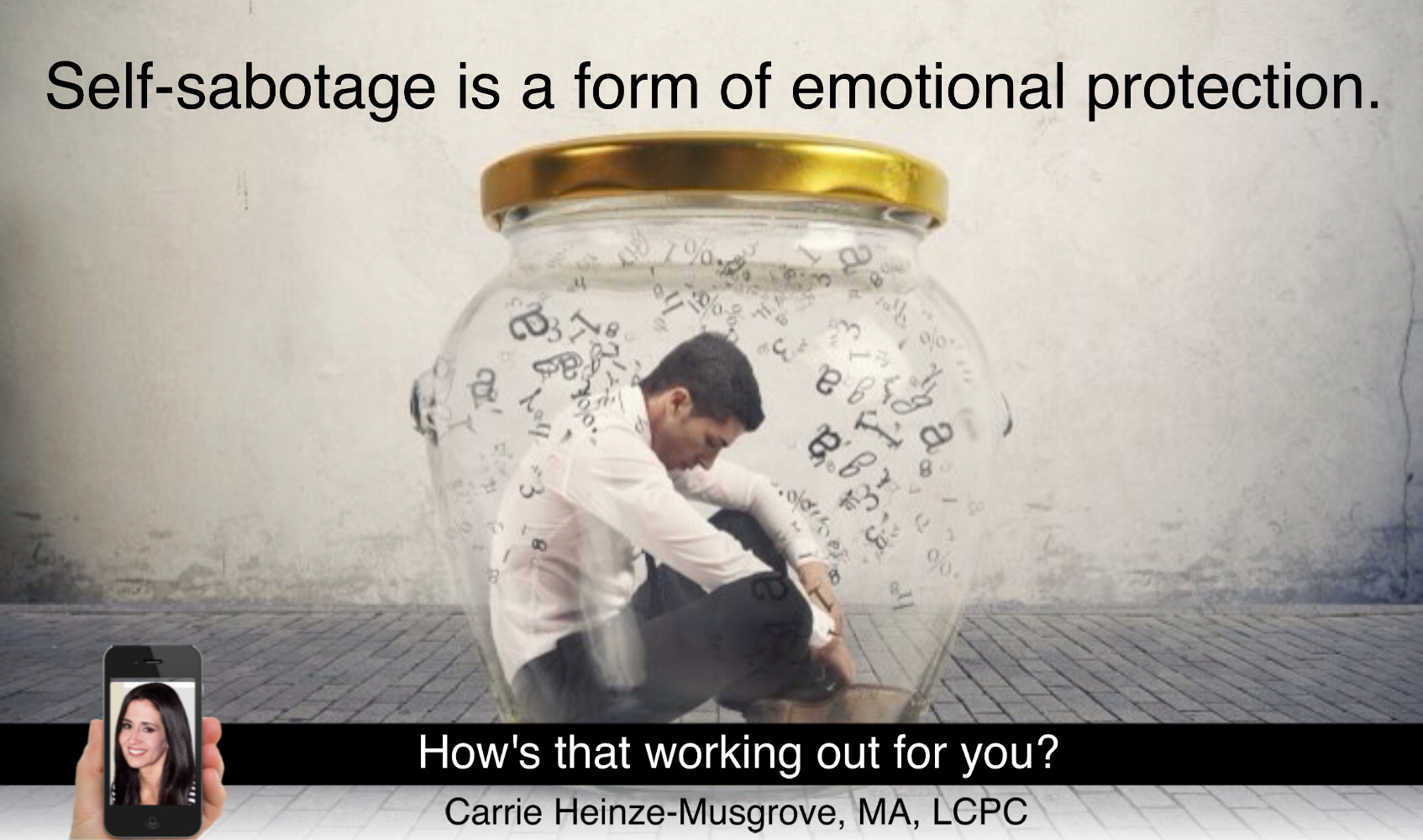Self-sabotage is a combination of negative thoughts, feelings and self-defeating behaviors. It is caused by low self-esteem and a lack of self-worth and confidence that create roadblocks in your life.
Self-sabotage happens when you are trying to achieve your goals and you come to a standstill with no rational explanation for your behavior. It is not about a lack of desire, skill or ability, rather something stops you moving forward.
Are you your own worst enemy? Does it ever seem like you are working against yourself? Are you stuck in a repetitive motion? Are you running at a senseless pace and getting nowhere?
One thing that may help you understand your self-sabotaging behavior is to recognize that you are actually trying to protect yourself rather than sabotage yourself. Sabotaging is rooted in fear and it is a way to protect us from being emotionally hurt.
The real danger of self-sabotage is that it’s often subconscious. The behavior is so logical and natural to the person engaging in it that he or she often doesn’t know it’s happening. We assume we are strengthening our position in life or with others.
Examples of self-sabotage include:
• Procrastination
• Negative self-talk
• Explaining yourself unnecessarily
• Keeping yourself isolated
• Swearing off relationships
• Putting off looking for the kind of job you want
• Allowing yourself to be used
• Frequent tardiness
• Irresponsibility
• Inability to finish what is started
• Inability to control anger
• Impulsivity
• Ignoring health
• Crisis-driven life
• Seeking out or staying in an abusive relationship
• Putting yourself down
• Being overly concerned about what others think of you
• Making decisions to please others
• Believing that success or failure defines your worth
How can you deal with self-sabotage? Honesty is the keyword. Shame, guilt, fear and perfectionism all do a terrible job of motivating us.
So, you’ll have to rethink your approach. Unchecked negative thinking is usually the start of self-defeating behavior.
Wisdom and success are gained through each experience. Slip-ups require you to assess the problem, modify your behavior and proceed in a different way. Be willing to give up the secondary gain for a more positive gain.
If you continue to struggle, seek out a therapist to help you change and give yourself permission to overcome self-sabotaging behavior.
Carrie







Hey Carrie,
First able would like to thank for all your content on Twitter, you just are the best.
I must say that I’ve got a few of all of those self sabotage examples you named at the top. But the one I hate the most is the feeling that I tend to regret every time I do some thing, suddenly it came this feeling that I did wrong and want to cry and punish myself, sometimes I wish I could be death or something. I know that my worst enemy is myself but don’t know how to work it out. Feel like I can’t control my anger and feel mad all the time. If you could give me a piece of advise will appreciate it very much.
Best regards
Omar
Hi Omar,
Thank you for reaching out and for your kind words. It is a difficult thing to change, but we have to work on changing our thoughts. If you feel stuck, you might want to consider therapy to help you through it. This is one of the things I help a lot of people work through. It sounds like you have some people pleasing in you too.